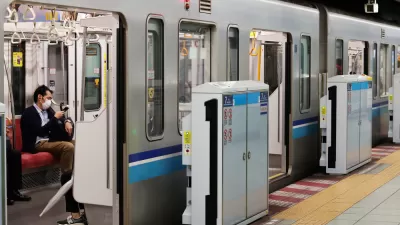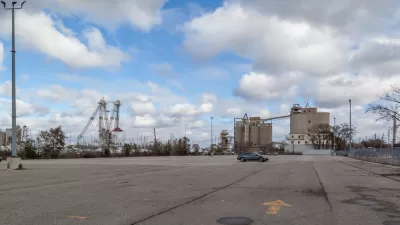Weather plays a big factor in the "smart cities" technology experiments in development by Sidewalk Labs for its Toronto pilot project.
Jacques Gallant reports on a recent Sidewalk Labs open house where the beleaguered company demonstrated some of its ideas for its "smart city" pilot in the Quayside neighborhood on the waterfront in Toronto.
"Sidewalk, backed by Google parent company Alphabet Inc., was showing off projects for the planned Quayside district, a test zone for urban tech on a 12-acre piece of land where Queens Quay E. meets Lake Shore Blvd.," according to Gallant.
"The projects included a 'building raincoat' — described as an adjustable plastic film awning attached to a building that can extend to protect the sidewalk from the elements. Another is a hexagonal paving system, including heated slabs to melt the snow and reduce the need for plowing and salting," reports Gallant.
The demonstration was effective in winning over at least some members of the public who attended the open house, as the project faces a spate of recent criticism.
FULL STORY: ‘Building raincoats’ and heated paving stones: Smart city technology on display at Sidewalk Labs open house

Maui's Vacation Rental Debate Turns Ugly
Verbal attacks, misinformation campaigns and fistfights plague a high-stakes debate to convert thousands of vacation rentals into long-term housing.

Planetizen Federal Action Tracker
A weekly monitor of how Trump’s orders and actions are impacting planners and planning in America.

In Urban Planning, AI Prompting Could be the New Design Thinking
Creativity has long been key to great urban design. What if we see AI as our new creative partner?

King County Supportive Housing Program Offers Hope for Unhoused Residents
The county is taking a ‘Housing First’ approach that prioritizes getting people into housing, then offering wraparound supportive services.

Researchers Use AI to Get Clearer Picture of US Housing
Analysts are using artificial intelligence to supercharge their research by allowing them to comb through data faster. Though these AI tools can be error prone, they save time and housing researchers are optimistic about the future.

Making Shared Micromobility More Inclusive
Cities and shared mobility system operators can do more to include people with disabilities in planning and operations, per a new report.
Urban Design for Planners 1: Software Tools
This six-course series explores essential urban design concepts using open source software and equips planners with the tools they need to participate fully in the urban design process.
Planning for Universal Design
Learn the tools for implementing Universal Design in planning regulations.
planning NEXT
Appalachian Highlands Housing Partners
Gallatin County Department of Planning & Community Development
Mpact (founded as Rail~Volution)
City of Camden Redevelopment Agency
City of Astoria
City of Portland
City of Laramie




























